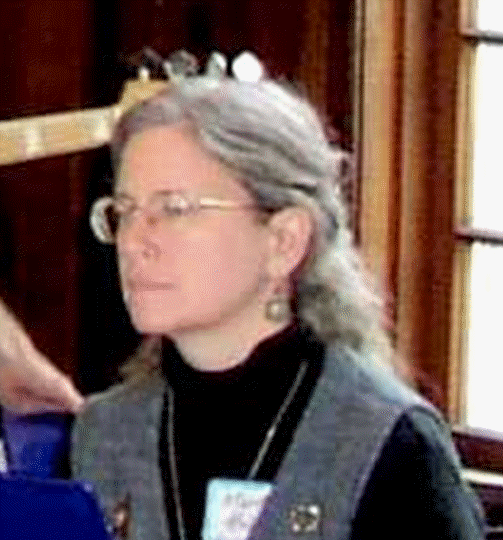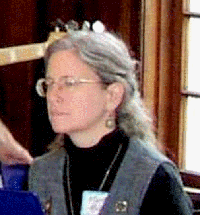Pray, Don't Give Up -- Phil Tiews
/ 1Then Jesus told his disciples a parable to show them that they should always pray and not give up. 2He said: “In a certain town there was a judge who neither feared God nor cared about men. 3And there was a widow in that town who kept coming to him with the plea, ‘Grant me justice against my adversary.’
1Then Jesus told his disciples a parable to show them that they should always pray and not give up. 2He said: “In a certain town there was a judge who neither feared God nor cared about men. 3And there was a widow in that town who kept coming to him with the plea, ‘Grant me justice against my adversary.’
4“For some time he refused. But finally he said to himself, ‘Even though I don’t fear God or care about men, 5yet because this widow keeps bothering me, I will see that she gets justice, so that she won’t eventually wear me out with her coming!’”
6And the Lord said, “Listen to what the unjust judge says. 7And will not God bring about justice for his chosen ones, who cry out to him day and night? Will he keep putting them off? 8I tell you, he will see that they get justice, and quickly. However, when the Son of Man comes, will he find faith on the earth?” Luke 18:1-8
I’m not sure this is most folk’s favorite saying of Jesus. Personally I prefer, ‘You may ask me for anything in my name, and — BAM — I will do it.’ (Jn 14:14 - sound effects supplied by me!) By fallen nature we long for instant gratification and our culture reinforces this at every turn. Even in the passage from Luke, Jesus says that God ‘will see that they get justice, and quickly.’ And yet that is the punch line for a parable which he tells ‘to show them that they should always pray and not give up’!
The widow in the story is sometimes described as ‘importune’. That is an old fashioned word which means to ask insistently and repeatedly, or as the judge says, ‘to wear me out with her coming’.
What is the mathematics of prayer? In Matthew 18 Jesus tells his disciples that ‘if two of you on earth agree about anything you ask for, it will be done for you by my Father in heaven.’ (Mt 18:19) In 2 Chron 7:14 God tells us, ‘if my people who are called by my name humble themselves, pray, seek my face, and turn from their wicked ways, then I will hear from heaven, and will forgive their sin and heal their land.’ So which is it? Just 2 of us or do we have to get the whole people to pray? So how long is it? Ask and it is done or pray and never give up?
I want to know the formula because I want results, and I want them with the least investment possible! (Feel free to join in on True Confessions whenever you like!) I like to find a bargain at the store or on the internet or at a garage sale — the thing I really wanted for less than I thought I would have to pay for it. The same is true when it comes to prayer. I want to see results, but I don’t want to have to pay more than absolutely necessary. How about just finding one other person and we take a moment and ask in Jesus’ name? Done!
Wanting what God wants God wants results, too. And He will have them, even ‘quickly’. My problem is that God looks for different results than I do. I want health, provision, someone’s problems solved, a successful event, lots of people to respond, and on and on. God wants people — people who are conformed to His Son, prepared as His Bride, united with Him forever. This beautiful world, which He made and considers good, and everything about it, which so dominate our thoughts, is a tool and a workshop for achieving His goals. He is going to toss it away eventually and provide a new one. People are the only part of it made to last forever, and we are the object of His heart and His works.
I am tempted to look at prayer as a way to get a little supernatural help to deal with the things which press on me or which I desire. For God, prayer is a way to work out His purpose of conforming me to, preparing me for, uniting me with His Son. In the process of praying He changes my heart to be like His, He aligns my life with His purposes, He brings me to look at His face and not just the works of His hands, He reveals His power, and so much more.
More love, more power I am convinced that God wants us to walk in a lot more power and to see a lot more ‘signs and wonders’ than we do now. This is simply because He intends the Body of Christ on the earth to more faithfully manifest the life and ministry of Christ! He is the King and brings His reign, and when He does things happen! I am also convinced that He is committed to His purposes IN us, as well as THROUGH us. So, sometimes we will see immediate answers to prayer, sometimes we will have to persevere, sometimes He will heed the cry of 2 or 3, sometimes He will wait until many hearts are united.
What, then, should we do? Pray, and then pray some more! Pray with our faces turned toward Him and our ears open to His voice. Pray for the things on His heart and which He has placed on ours. Pray with warring and as well as waiting. And this advice coming from someone who struggles to pray!
It is becoming increasingly obvious to me that ‘apart from Jesus we can do nothing’, but also that He wants us to do lots! The key to community health and fruitfulness—prayer. The key to ongoing effective NextGeneration outreach—prayer. The key to Christian unity and transformation in the County—prayer. The key to our conformation to Christ and entering into Bridal partnership with Him—you guessed it — prayer. Not prayer as a technique but as living connection to the living God. Jesus wants to us ‘pray and never give up’ so that we see His kingdom come quickly.
Importunity is important!


















